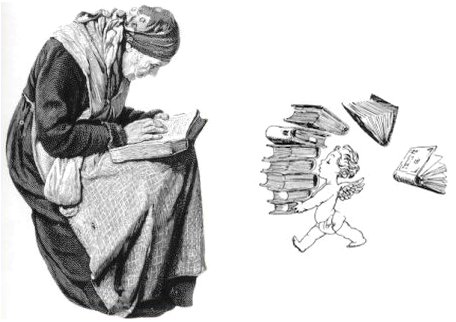A Landmark: 1500/2000
Today, we reach a landmark. The University of Houston's College of Engineering presents this series about the machines that make our civilization run, and the people whose ingenuity created them.
We reach the 1500th broadcast of this program just as 1999 draws to a close and everyone's trying to sum up the Second Millennium. Well, that does not mean I'm about to summarize 1500 episodes. In fact, I can't think of a better time to kick back and put ignorance out where we can see it. This is no time to draw conclusions. It's a time to savor the huge ambiguities of our world today. It's a time to be alert to change and to possibility.
The year 2000 itself is fraught with ambiguity. It marks only 1999 years from the nominal birth of Christ, since there was no zero BC, and our calendars jump from 1 BC to 1 AD. However, after calendar adjustments, we find that Christ was actually born in 4 BC or earlier. That means this New Year will mark the year 2002 -- maybe even more. Insofar as the millenium is an anniversary of Christ's birth, it's already history.
As for the 1500th program, like the year 2000, it's nothing special. If we wrote 1500 in base-six numbers, instead of in base-10, it'd look like 10,540. In base-six it doesn't attract our attention at all -- and neither would the number 2000. The only thing that's really special about either number is that it's a double multiple of the number of our fingers.
But, as dates, they hold something else entirely in common. Put yourself in the shoes of a European living in AD 1499. Millions of new printed books had been pumped into your surroundings by the new presses -- just as millions of computers have been pumped into ours. A New World had just been discovered to the west, across the Atlantic, and news of it was pouring back into Europe. Now, five hundred years later, you and I watch plans being laid for colonizing Mars, while our industries are commercializing space nearer to Earth.
In 1499, religion was about to pass from institutions into the hands of individuals. Surrounded by horrifying religious strife in 1999, we become newly determined to create ecumenism and peaceful coexistence. Will we succeed? Only time will tell.
In 1499, our philosophical sciences were about to become data-driven in a way they'd never been. Now, in 1999, the computer and its new ability to make previously-unthinkable calculations is reshaping science in ways we can't begin to understand.
Where all this will come to rest, none of us has a clue. So I find a special irony in finishing the 1500th episode on the eve of the year 2000. It summons up that other age when summaries and conclusions were just as impossible as they are today.
I close in on the year 2000 with curiosity and a profound sense of my own ignorance. There's danger here, but also hope. Fifteen hundred radio programs have left me with a new respect for the potential-laden ambiguity of our life on Earth. If ever there were a time when all our summaries and predictions are worse than useless, this is it.
I'm John Lienhard, at the University of Houston, where we're interested in the way inventive minds work.
(Theme music)
